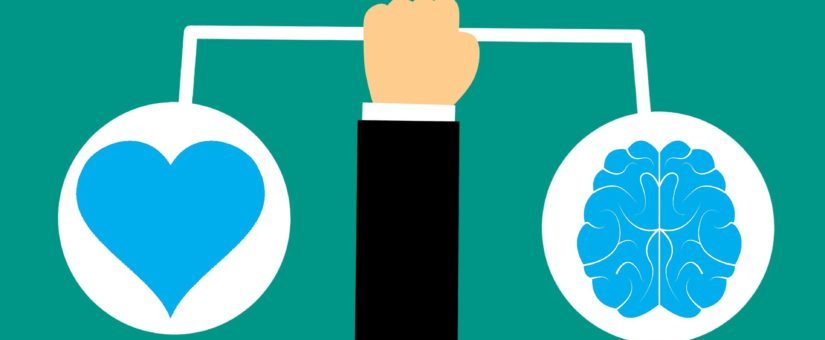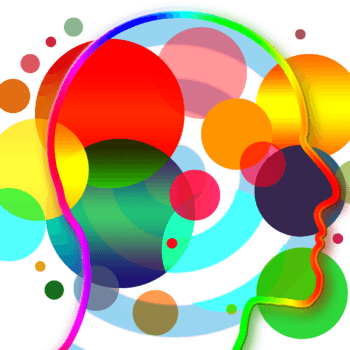The Three Foundations of Empathy

The Three Foundations of Empathy
As a professional in today’s organizations, there are three important “inside out” foundations that support the development of the competency of Empathy, one of the master competencies of highly effective leaders and professionals.
In another post, we will learn more about the overall competency of Empathy, and the seven component skills of Empathy, but for now, let’s explore these important foundations for developing Empathy that are essential skills for leaders and professionals.
Empathy Foundation One – Know You are Social
Here is some good news for all of us aspiring to improve our skills for Empathy. Recent scientific research on how the brain functions physically suggests that our brains appear to be “wired” for practicing Empathy; and from a behavioral, social aspect, our evolutionary history suggests one major defining attribute of humans is our ability to be highly collaborative and cooperative, and to deploy a range of social skills, not the least of which is the ability for Empathy.
Indeed, through centuries of human evolution, the capacity to care about others and collaborate with them has been one of humankind’s strongest capacities. We may not have had the teeth of a saber-toothed tiger, or the speed of the big cats, but our earliest ancestors developed capacities to communicate and collaborate to a high degree—and outsmart them. They could build weapons—and act in teams.
- Today, our evolutionary journey out of the Ice Age forests has naturally equipped us to be social, and to operate in highly organized, collaborative organizations where we can contribute to society through the products and services our firms provide.
- In the last twenty years, brain scientists have discovered physiological brain capacities that suggest humans possess a “Social Brain”, as if we appear to be neurologically wired to be social. Your “social brain” is carried on a stream of what neuroscientists are calling mirror neurons.
These multiple neural pathways (our neural “Wi-Fi” so to speak) allows you to mimic and pick up not just actions, but to tune into people’s emotions and intentions viscerally—and “get in sync”—in a sort of open reciprocal “loop” as these mirror neurons activate inside you.
In other words, when you access and demonstrate Empathy with another or in a group, they can actually sense it and feel it. And conversely, when you practice disregard for others, or you emote a mood of pessimism or cynicism, people can feel it too on a type of “social Wi-Fi”.
- For instance, if you are a team leader, your entire team can get carried on a stream of mirror neurons based on your demonstrations of optimism or interpersonal caring about them. Conversely, your team may sense how you might disregard them or not support their development. Or they may observe how you can easily descend into pessimism when a setback happens. They may get resentful of your disregard. Or your pessimism may harm their ability to bounce back with you and recover from the setback.
So watch what you are broadcasting on your social Wi-Fi network, and exactly how you interact with others. They are wired to pick up your signals, your behaviors and your moods, either positive or negative.
Empathy Foundation Two – Just Like Me
Another foundation for Empathy is a type of “mind-set” that other people are just like you; they generally want the same important things from their life and work, and just like you, they just want to be effective, happy and successful too.
- When you realize this fundamental unity and similarity with others, and you adopt this foundational mind-set, Empathy then naturally arises. “Hey, this person is basically just like me. I can identify and empathize with them.”
Practicing this mind-set can make a great difference in your personal equanimity and your social interactions, and reduce any negative tendencies for “over-competitiveness”, excessive personal ambition, or general self-centeredness.
- By adopting a “mind-set” that others are just like you, you naturally want to help other people win too. When we operate more from seeing that other people are just like us, it helps us find ways to make mutual “wins” happen.
Empathy Foundation Three – Cultivating Kindness
Another foundational “mind-set” to develop Empathy is to adopt a habit of generally wishing people to be well and happy. This leads you to naturally develop a capacity for human kindness.
- When you truly wish people to be well and happy and successful, you tend to become a kinder person.
And you also shift away from the limited Ego side of our nature which is often overly concerned with the ego-based self-survival and self-ambition, often at the expense of others.
- When you are a kinder person, people want to be around you because they know you care about them and wish them well.
Intentionally developing your capacity for kindness is a natural accelerator of interpersonal Empathy. In some respects, it is both a “mind-set” and a “heart re-set” in practice.
These three foundations of Empathy will help provide a good base for using the seven component skills of the overall competency of Empathy.
Effective Change is Integral
Since 1990, in our change management consulting and facilitation work in organizations, we have found that when leaders try to create positive organizational change, it is essential to find proven ways to increase individual and team-based awareness and skills for effective personal change and team change.
To engage your leadership team or work teams in developing skills and competencies like Empathy, see our innovative programs on building Social and Emotional Intelligence for Teams or your organizational leaders.
- 0 Comments


0 Comments